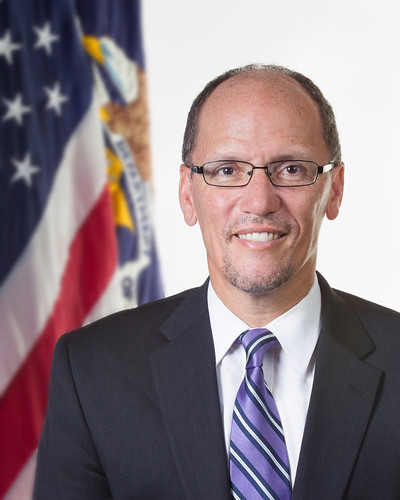
U.S. Agriculture Secretary Tom Vilsack
A group of coders in hooded sweatshirts and big headphones stare intently at their computer screens.
In the corner, staff take a break at the foosball table, while a young woman in an oversized beanbag chair types away on her laptop.
You might be picturing the headquarters of a Silicon Valley startup, but the scene described above is over 2,000 miles away from San Francisco—in Jonesboro, Arkansas.
There, Rural Sourcing, Inc. (RSI) hires and develops qualified IT professionals for clients ranging from small- and medium-size software development firms to Fortune 500 companies. Jonesboro is one of several RSI locations located in small cities and rural areas across the country.
RSI isn’t alone. Across America, towns and businesses are seizing the opportunity to bring well-paying IT jobs to rural areas, tapping into the tremendous talent that can be found in those communities.
In central Nebraska, Buffalo County and the City of Kearney are partnering with Xpanxion, a professional IT services firm, and Invest Nebraska, Inc., to launch a technology incubator that will support high-growth software startups. In eastern Kentucky, Bit Source, Inc. is teaching coal miners how to code.
Recently, we announced that Jackson, Tennessee—90 miles east of Memphis—has joined the White House TechHire Initiative, a multi-sector effort with municipalities, universities and community colleges, but also nontraditional approaches like “coding boot camps” and high-quality online courses, to empower Americans with the skills they need and rapidly train workers for well-paying jobs.
As a TechHire community, west Tennessee’s regional innovation center, theCO, will partner with employers to expand its Code Catalyst Program, training and placing 100 individuals into paid internships, apprenticeships, and jobs in 2016 and up to 350 by 2020.
With tech jobs paying about 50 percent more than average private sector jobs, the impact could be transformative.
Over the course of this Administration, the White House Rural Council has invested in the heritage and promise of rural America, spearheading innovative approaches like the Rural Jobs and Innovation Accelerator Challenge to spur economic development in rural areas.
There is a growing opportunity for American businesses to domestically source IT delivery and jobs. This is particularly the case in rural America.
According to Gartner Inc. Research Analyst Helen Huntley: “A growing number of clients are seeking onshore IT delivery in low-cost rural settings factoring in both costs (labor rates) and qualitative factors (customer experience), especially for IT work that involves significant business collaboration. This has proven to be effective in closing the offshore ‘value gap’.”
Average cost savings achieved by IT offshoring is declining; according to a recent survey, average savings has decreased from around 38 percent a decade ago to 27 percent today, due largely to heightened costs for offshore project management, employee retention, vendor selection, and quality control.
In addition to a narrowing wage gap due to lower costs of living in rural areas, according to one survey, the employee attrition rate in rural areas of the U.S. is less than half the rate typically seen in offshore locations.
This can be a major cost saver, allowing employers to more confidently invest in their workforce and avoid costs associated with frequent turnover.
Earlier this year we hosted a roundtable in the Roosevelt Room of the White House with 20 business leaders who see the value of rural domestic sourcing.
Rather than managing teams in far-off time zones and navigating challenging regulatory and privacy issues, they are choosing to bring IT jobs home to rural communities—with impressive results.
The question being asked—from the boardroom to city hall and all the way to the White House –is how can we capitalize on these trends?
There’s no shortage of inspiration: places like Jonesboro, Arkansas; Kearney, Nebraska; and eastern Kentucky are showing what’s possible.
Through the TechHire Initiative, the Obama Administration will continue to work hand-in-hand with communities, community colleges, online training providers, and employers to drive economic development in rural America and bring back well-paying tech jobs from overseas.

U.S. Labor Secretary Thomas Perez
No comments:
Post a Comment
Note: Only a member of this blog may post a comment.